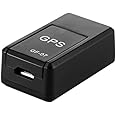Navigating with a heavy load is significantly different than a simple drive to the grocery store. For tow truck operators, heavy-duty vehicle drivers, and anyone hauling substantial weight, a standard GPS just won’t cut it. The right GPS navigator needs to understand the unique challenges of towing and heavy-duty driving, offering features that prioritize safety, efficiency, and route optimization specifically designed for larger, heavier vehicles. Let’s delve into the world of specialized GPS navigators, exploring what makes them essential and how to choose the best one for your needs.
Why Specialized GPS is Crucial for Heavy Loads

Standard GPS units, while convenient for everyday driving, often fail to account for the specific limitations of heavy-duty vehicles. These limitations include things like:
- Weight Restrictions: Bridges, roads, and even some neighborhoods have weight limits that a standard GPS might overlook, leading to potential fines or damage to infrastructure.
- Height and Width Restrictions: Overpasses, tunnels, and even some city streets have height and width restrictions that are crucial to avoid. A specialized GPS should consider these dimensions.
- Steep Grades and Sharp Turns: Heavy loads require gentler grades and wider turning radii. Specialized GPS systems can offer routes that minimize stress on the vehicle and its cargo.
- Road Conditions: Potholes, uneven surfaces, and soft shoulders pose significant risks for heavy vehicles. Some advanced systems can factor in real-time road condition reports.
Ignoring these factors can lead to costly delays, safety hazards, and potentially severe damage to your vehicle or cargo.
Understanding the Importance of Torque

Torque, the rotational force of an engine, is paramount when towing or driving heavy-duty vehicles. It’s what allows you to pull heavy loads, climb steep inclines, and accelerate smoothly. A GPS navigator won’t directly measure torque, but understanding your vehicle’s torque capabilities allows you to intelligently use the GPS features designed for route optimization. If your GPS recommends a particularly steep incline, knowledge of your engine’s torque will help you assess whether it’s a feasible route or if an alternative route is needed.
Engine Options and Towing Specifications
The choice of engine greatly influences your towing capabilities. Common engine types for heavy-duty vehicles include diesel engines (known for their high torque at low RPMs), gasoline engines (offering higher RPM power but potentially lower torque), and hybrid options. When selecting a GPS, check its compatibility with your specific vehicle’s specifications. The information about your vehicle’s GVWR (Gross Vehicle Weight Rating), GCWR (Gross Combined Weight Rating), and payload capacity should be readily available. These numbers determine your vehicle’s safe towing limits and should directly inform your route planning using the GPS.
Specific Torque and Towing Specs: A Closer Look

Let’s look at a hypothetical example to illustrate the importance of considering specifications. Imagine two vehicles: one with a diesel engine capable of 600 lb-ft of torque, and another with a gasoline engine offering 350 lb-ft. Both are equipped with a GPS, but the routes suggested will differ based on their capabilities. The diesel-powered vehicle might be able to navigate steeper inclines suggested by the GPS, while the gasoline-powered vehicle would need an alternative, less steep route, which the GPS system should ideally offer.
GPS Navigator Comparison: Top Contenders
The market offers several GPS navigators designed for towing and heavy-duty vehicles. Let’s briefly compare some features of leading brands (replace these with actual brands and models):
| GPS Navigator | Key Features | Pros | Cons |
|---|---|---|---|
| Brand A – Model X | Offline maps, weight/height restriction alerts, real-time traffic updates, off-road navigation | Robust offline functionality, accurate alerts | Pricey, limited user interface customization |
| Brand B – Model Y | Detailed road condition reports, customizable profile for vehicle dimensions, route planning with incline/decline warnings | Comprehensive route planning tools, user-friendly interface | Requires active internet connection for some features |
| Brand C – Model Z | Simple interface, basic weight/height alerts, affordable pricing | Budget-friendly, easy to use | Limited features compared to competitors |
Note: This comparison is hypothetical; consult individual product specifications for accurate information.
Practical Advice for Users

To get the most out of your GPS navigator:
- Accurately input your vehicle’s dimensions and weight: This is crucial for accurate route calculation.
- Regularly update your GPS software and maps: This ensures you have the latest road information and avoid outdated data.
- Familiarize yourself with all features: Take time to learn how to use all the advanced functions before relying on it for critical navigation.
- Always double-check the suggested route: Don’t solely rely on the GPS; use common sense and check for any obvious issues before embarking on a journey.
- Plan for contingencies: Unexpected delays and detours are possible. Have backup routes in mind.
Investing in a specialized GPS navigator designed for towing and heavy-duty vehicles is a crucial step towards safer and more efficient operations. By carefully considering the factors discussed in this article – such as torque, engine type, and specific towing capacities – and selecting a GPS system that meets your needs, you’ll significantly reduce risks and enhance your overall performance on the road.


